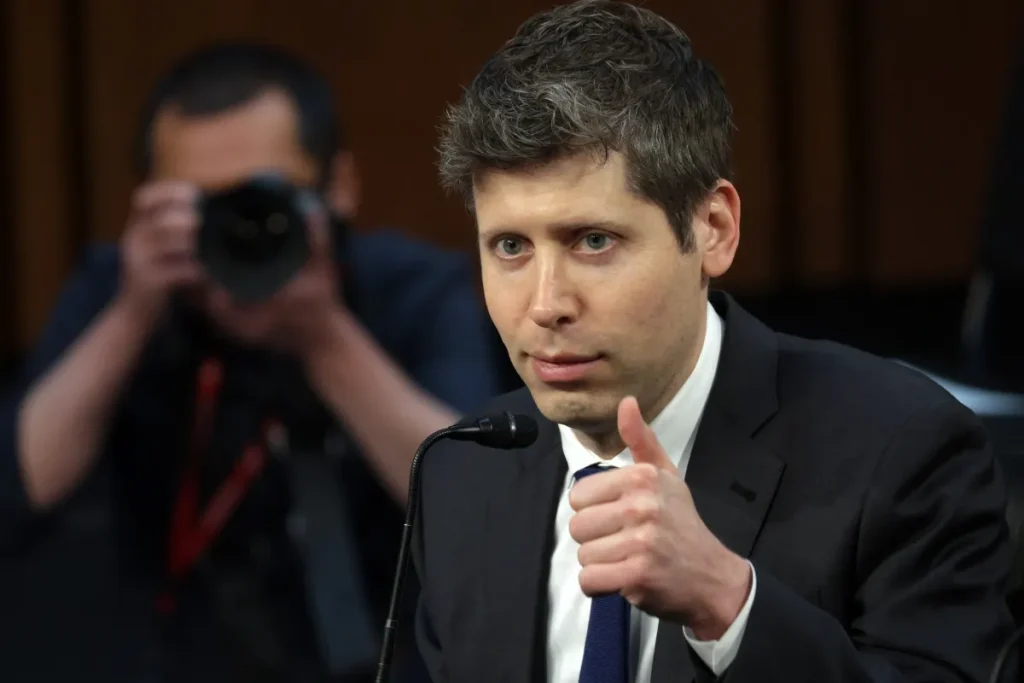Should AI Take Responsibility for All Tasks? OpenAI’s Perspective.

Should AI do everything? OpenAI thinks so
Silicon Valley’s Shift Away from Caution in AI Development
The tech landscape in Silicon Valley is undergoing a significant transformation, with a prevailing sentiment that prioritizes bold innovation over caution. In a recent episode of the Equity podcast, hosts Kirsten Korosec, Anthony Ha, and Max Zeff explored the implications of this shift, particularly as OpenAI removes its safety guardrails and venture capitalists criticize companies like Anthropic for advocating AI safety regulations. This evolving narrative raises the question: who is truly in charge of shaping AI development?
The Changing Attitude Towards AI Safety
In an environment where caution is increasingly seen as “uncool,” companies like Anthropic are facing backlash for their commitment to AI safety. As California introduces regulations like SB 243, aimed at governing AI companion chatbots, it’s clear that the industry is polarized. On one side, there’s a faction that yearns for innovation at breakneck speed; on the other, there are those who recognize the potential risks associated with unchecked AI development. The tension surrounding these issues reflects a broader cultural shift in Silicon Valley, where the allure of rapid advancement often overshadows the ethical considerations that come with it.
The Backlash Against AI Safety Advocates
The criticism aimed at Anthropic for supporting AI safety regulations underscores a troubling trend: the notion that prioritizing safety is at odds with the goal of technological innovation. This mindset is dangerously reductive, especially as technologies like AI have the potential for far-reaching consequences. The challenges posed by AI are becoming more apparent, as numerous experts and organizations call for responsible development practices. Yet, within the competitive landscape of Silicon Valley, the narrative remains skewed towards growth and scale, often at the expense of ethical considerations.
The Blurring Line Between Innovation and Responsibility
In the latest episode of Equity, the panel discusses how the interface between innovation and responsibility is evolving. As pranks and experiments in the digital realm transition into the physical world, the potential for unintended consequences escalates. The entire framework within which AI operates must be scrutinized more closely, as the stakes grow higher. The episode sheds light on how Silicon Valley is grappling with these emerging challenges, even as the allure of rapid advancement continues to captivate entrepreneurs and investors alike.
Digital Pranks in the Real World
One of the more curious aspects discussed in the episode is the phenomenon of pranks that cross from the digital space into the physical realm. While humor and creativity are vital elements of tech culture, the transition to real-world implications can lead to unforeseen outcomes. This highlights the need for greater accountability and responsibility among tech users and creators. If the lines continue to blur between virtual mischief and real-world repercussions, the industry may face criticism not just for its technologies but also for the culture it fosters.
Startups Innovating Amidst Regulatory Challenges
Despite the overwhelming pressure to prioritize rapid growth and innovation, some startups are adeptly navigating the current regulatory landscape. In particular, several companies are finding creative workarounds to file for IPOs during the ongoing government shutdown. This adaptability illustrates the relentless drive for growth that characterizes Silicon Valley, even in the face of significant challenges.
SEC Workarounds for IPOs
As many startups face delays in regulatory approvals due to the shutdown, a handful are leveraging loopholes to continue their fundraising efforts. These innovative strategies underline the lengths to which companies will go to secure capital and maintain momentum. Although these measures may represent a temporary solution, they also raise ethical questions about compliance and transparency within the fast-paced world of tech investment. As we witness these startups push the envelope, the broader implications for regulatory frameworks and industry standards become increasingly relevant.
The Role of Equity Podcast in Industry Discourse
Equity serves as a crucial platform for dissecting these complex issues within the tech industry. Produced by Theresa Loconsolo, the podcast delves into the nuances of venture capital, startups, and technology trends every Wednesday and Friday. Each episode offers insights that can help listeners understand the intricate interplay between innovation, responsibility, and regulatory practices.
Stay Connected with Equity
For those keen to engage with ongoing discussions around AI development and the tech industry’s cultural shifts, subscribing to the Equity podcast is highly recommended. You can find it on popular platforms like Apple Podcasts, Overcast, and Spotify. Additionally, follow Equity on social media platforms such as X and Threads at @EquityPod to stay updated on the latest episodes and discussions.
Conclusion
As Silicon Valley grapples with the tension between innovation and responsibility, the conversations around AI development are more critical than ever. The pushback against AI safety advocates and the emerging regulatory frameworks signal a need for a more nuanced approach to technology. Whether through the lens of pranks spilling into real life or startups maneuvering through regulatory mazes, the stakes are high. It remains to be seen how this pivotal moment will shape the future landscape of technology and the ethical responsibilities that come with it. Engaging with resources like the Equity podcast can provide valuable insights into these evolving discussions, making it a must-listen for anyone invested in the future of tech.
Thanks for reading. Please let us know your thoughts and ideas in the comment section down below.
Source link
#OpenAI #thinks





